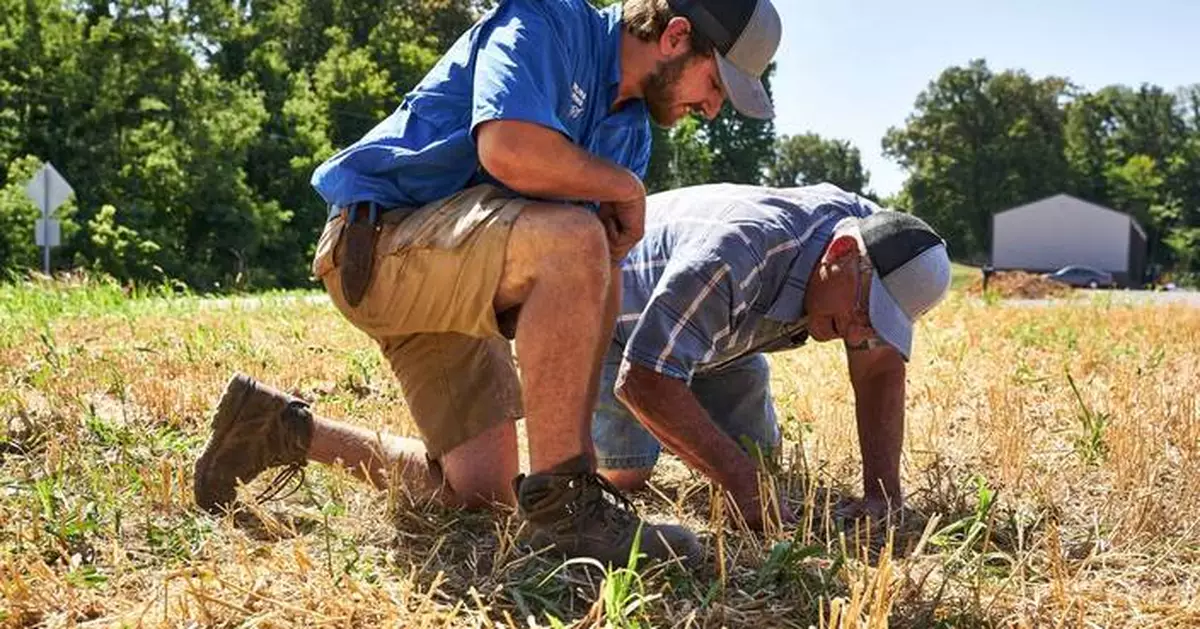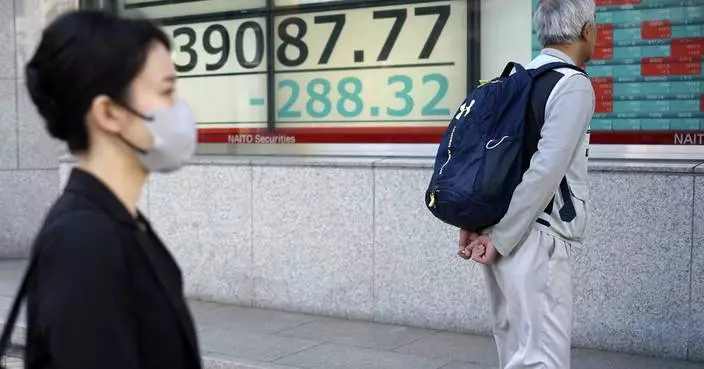MINNEAPOLIS--(BUSINESS WIRE)--Nov 12, 2024--
Cargill RegenConnect® has surpassed one million enrolled acres for the 2025 U.S. planting season, a milestone that underscores Cargill’s ongoing efforts to support farmers in adopting regenerative agriculture practices. Through partnerships with farmers across the United States and beyond, Cargill is helping to transform agricultural systems for a more sustainable, food secure world.
This press release features multimedia. View the full release here: https://www.businesswire.com/news/home/20241112043432/en/
Since its launch in 2021, Cargill RegenConnect has provided farmers with the tools, resources, and incentives they need to implement regenerative practices like low till, no-till, and cover cropping. These practices can help improve soil health, increase water retention, sequester carbon and enhance biodiversity. The nearly 1,500 farmers enrolled in the U.S. program receive dedicated agronomist support, one-year contracts, payments for carbon sequestered, and choice of regenerative practices to adopt. This flexible approach helps farmers find the methods that work best for their operation as they transition.
“ This milestone is not just a number; it reflects the growing movement of farmers who are integrating regenerative practices to help improve their soil health and resiliency. Most farmers that enroll in Cargill RegenConnect return year after year, and more than 40 percent of those returning growers added new acres for 2025, underscoring the momentum behind this shift,” said Brooke Hokana Hansen, Sustainability Director for Cargill’s North American Agriculture & Trading business.
The expansion of Cargill RegenConnect builds on the progress Cargill recently shared in its 2024 Impact Report, which highlights the company’s efforts to scale regenerative agricultural practices globally.
Cargill’s vision is to make regenerative agriculture commonplace across its global supply chains. Today, Cargill RegenConnect is available in 24 U.S. states. Cargill has expanded regenerative agriculture globally with programs in Canada, Australia, Brazil and Europe. In total, Cargill has introduced regenerative agriculture initiatives across more than 15 countries which include agroforestry and cattle grazing management, farmer trainings and research. These region-specific programs and partnerships help farmers access solutions and technical support tailored to their local growing conditions.
“Every farm faces its own set of unique operating conditions, and successful adoption requires localized solutions,” added Hansen. “We meet farmers where they are, providing them the agronomic and technical support they need. To fully unlock the potential of regenerative agriculture, collaboration is essential. Farmers, policymakers and food companies must work together to scale these practices and support a more resilient, secure food system.”
Regenerative agriculture programs like Cargill RegenConnect not only provide benefits at the farm level, but can also help Cargill’s downstream customers reduce the environmental footprint of their supply chains.
About Cargill
Cargill is committed to providing food, ingredients, agricultural solutions, and industrial products to nourish the world in a safe, responsible, and sustainable way. Sitting at the heart of the supply chain, we partner with farmers and customers to source, make and deliver products that are vital for living.
Our 160,000 team members innovate with purpose, providing customers with life’s essentials so businesses can grow, communities prosper, and consumers live well. With 159 years of experience as a family company, we look ahead while remaining true to our values. We put people first. We reach higher. We do the right thing—today and for generations to come. For more information, visit Cargill.com and our News Center.
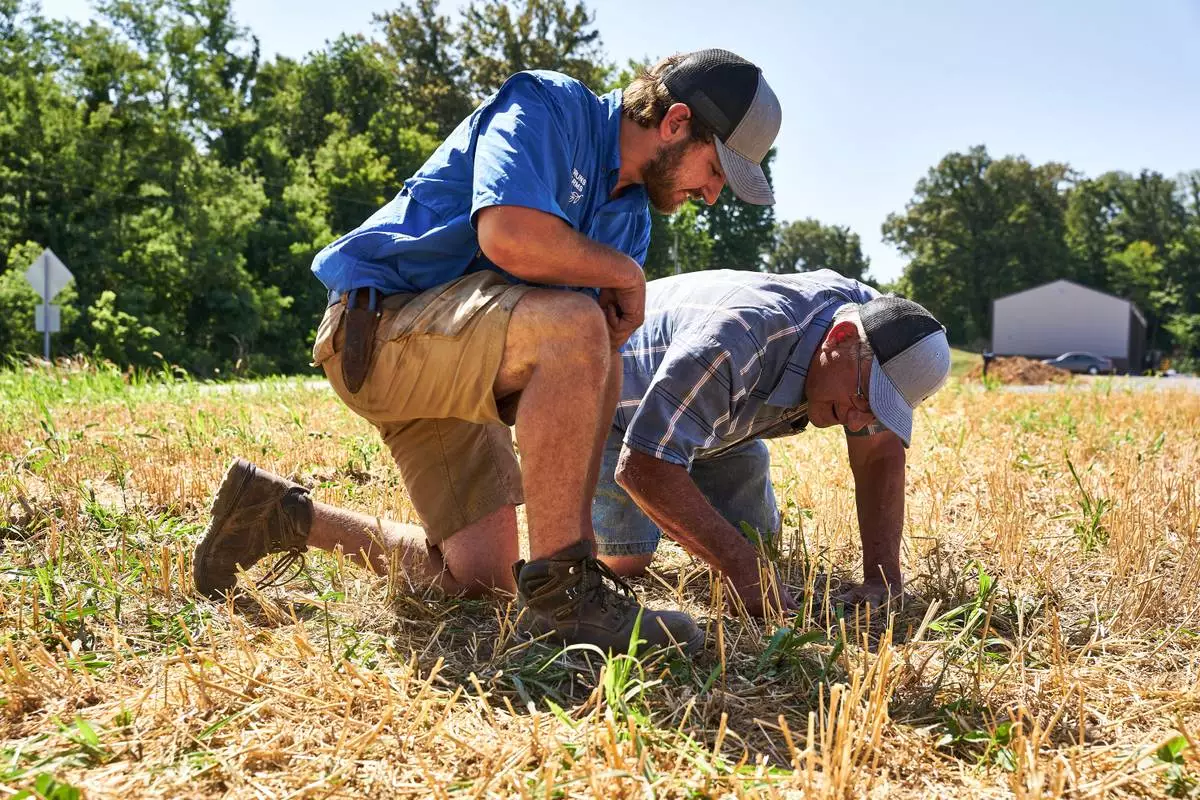

Cargill RegenConnect® has surpassed one million enrolled acres for the 2025 U.S. planting season, a milestone that underscores Cargill’s ongoing efforts to support farmers in adopting regenerative agriculture practices. Through partnerships with farmers across the United States and beyond, Cargill is helping to transform agricultural systems for a more sustainable, food secure world. (Photo: Business Wire)
BAKU, Azerbaijan (AP) — More than two dozen world leaders are delivering remarks at the United Nations' annual climate conference Wednesday, with many hard-hit nations detailing their nations' firsthand experience with the catastrophic weather that has come with climate change.
Leader after leader recounted climate disasters, with each one seeming to top the other. Grenada's prime minister Dickon Mitchell detailed a 15-month drought at the beginning of the year giving way to a Category 5 Hurricane Beryl.
“At this very moment, as I stand here yet again, my island has been devastated by flash flooding, landslides and the deluge of excessive rainfall, all in the space of a matter of a couple hours,” Mitchell said. “It may be small island developing states today. It will be Spain tomorrow. It will be Florida the day after. It’s one planet.”
Grenada's premier wasn't the only small island nation leader who came with fighting words.
Prime minister Philip Edward Davis warned that “it will be our children and grandchildren who bear the burden, their dreams reduced to memories of what could have been.”
“We do not — cannot — accept that our survival is merely an option,” Davis said.
Gaston Browne, the prime minister of Antigua and Barbuda, highlighted the “inverted morality” of big emitters who aren’t taking responsibility for their impacts on countries who have the most to lose. He said high-polluting nations are “deliberately burning the planet."
Past promises of financial aid went unfulfilled for too long, so small island nations will have to seek justice and compensation in international courts, Browne said.
Marshall Islands president Hilda Heine called the climate crisis “the most pressing security threat” her country faces, but said she thinks the Paris Agreement process — where countries agreed to limit warming to 1.5 degrees (2.7 degrees Fahrenheit) since pre-industrial times — is resilient.
Azerbaijan president Ilham Aliyev took the opportunity to align his country with the predicament of small island developing states in a speech where he called out developed countries, in particular France and the Netherlands, for their colonial histories.
He described the harms of colonialism that continue today. Biodiversity loss, rising seas and extreme weather hit communities that are often “ruthlessly suppressed,” he said.
The United States also tried to show sympathy to hard-hit places.
“Do we secure prosperity for our countries or do we condemn our most vulnerable to unimaginable climate disasters?” United States chief climate envoy John Podesta said. “Vulnerable communities do not just need ambition. They need action.”
European nations also warned of climate catastrophe on their continent.
“Over the past year, catastrophic floods in Spain, Bosnia and Herzegovina as well as in southern Croatia have shown the devastating impact of rising temperatures,” said Croatia's prime minister, Andrej Plenkovic. “The Mediterranean, one of the most vulnerable regions, calls for urgent action.”
Albania Prime Minister Edi Rama said he was dismayed by the lack of political action and political will and leaders of many nations not showing up at climate talks as extreme weather strikes harder and more frequently. Frustrated with other leaders mere talk, Rama decried that “life goes on with old habits" and all these speeches filled with good intent change nothing.
“What is happening in Europe and around the world today doesn’t leave much room for optimism, though optimism is the only way of survival,” Rama said.
Greek prime minister Kyriakos Mitsotakis said Europe and the world needs to be “more honest” about the trade-offs needed to keep global temperatures down.
“We need to ask hard questions about a path that goes very fast, at the expense of our competitiveness, and a path that goes some much slower, but allows our industry to adapt and to thrive,” he said. His nation this summer was hammered by successive heat waves after three years of below-average rainfall. The misery included water shortages, dried-up lakes and the death of wild horses.
Ireland environment minister Eamon Ryan channeled some hope, saying that the 2015 Paris climate treaty “still lives” and that countries who drop out will realize they are falling behind as other countries move forward and see benefits to their economies.
Negotiators at the summit are looking to hammer out a deal on how much money, and in what form, developed countries will pledge for adapting to climate change and transitioning to clean energy for developing nations.
On Wednesday morning, an early draft of what that final deal will look like was released, but it still contained multiple options that negotiators will wrestle over to reach a consensus by the end of the climate talks.
David Waskow, director of international climate action at the World Resources Institute said the latest 34-page draft reflects “all of the options on the table.”
“Negotiators now need to work to boil it down to some key decisions” that can be worked on at the second half of the summit.
The latest draft “does incorporate some new demands” including an ask for one of the largest negotiating blocs — the G77 plus China — for $1.3 trillion in climate finance, said Avantika Goswami, a climate policy analyst with the New Delhi-based Centre for Science and Environment.
“Developing countries have been clear that a provisional goal must be carved out to hold developed country governments to account,” she said.
In a veiled reference to China, Germany’s climate envoy Jennifer Morgan said all climate-polluting countries should make contributions to climate funds, one of the most contentious issues being debated at the climate talks in Baku this year.
“There are countries that have been successful and prosperous over the last years since 1992, and they also can make a great contribution to getting funds into developing countries," she said.
Associated Press writers Dorany Pineda in Los Angeles contributed.
The Associated Press’ climate and environmental coverage receives financial support from multiple private foundations. AP is solely responsible for all content. Find AP’s standards for working with philanthropies, a list of supporters and funded coverage areas at AP.org.

People walk outside the Baku Olympic Stadium, the venue for the COP29 U.N. Climate Summit, Wednesday, Nov. 13, 2024, in Baku, Azerbaijan. (AP Photo/Peter Dejong)
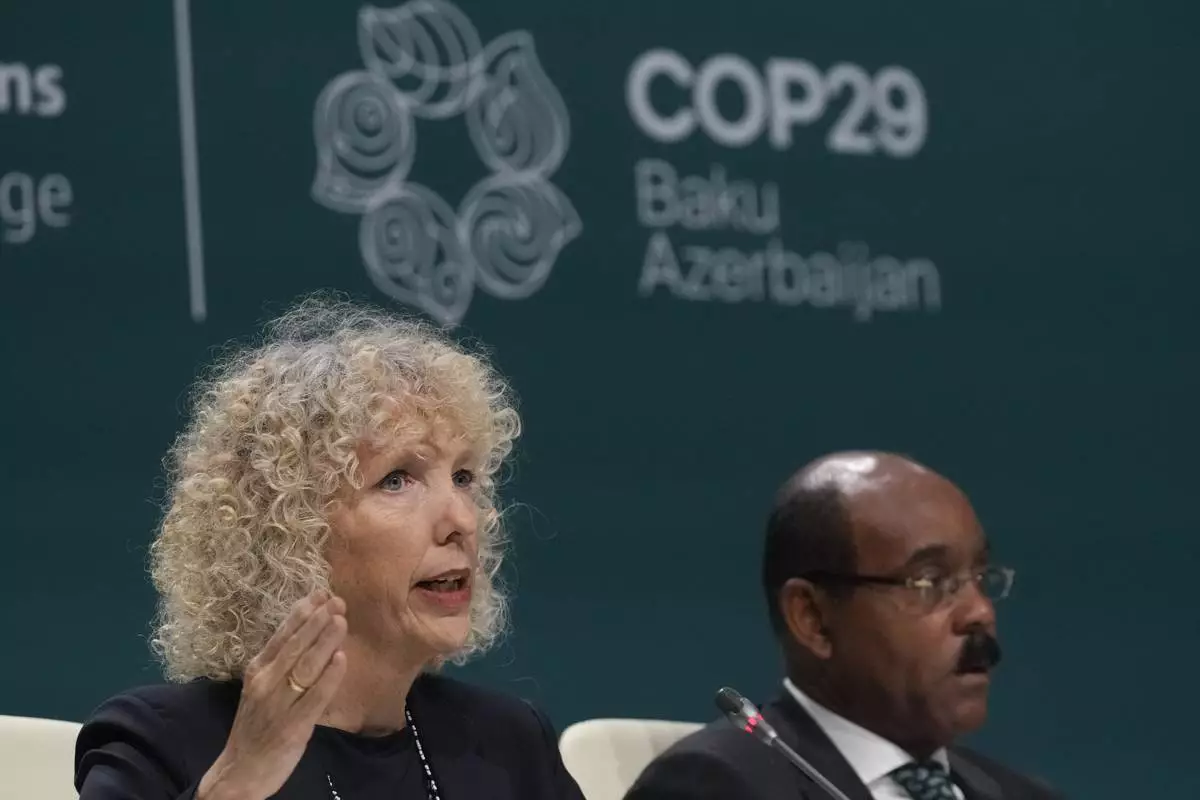
Jennifer Morgan, Germany climate envoy, attends a session with the Marshall Islands High Ambition Coalition at the COP29 U.N. Climate Summit, Wednesday, Nov. 13, 2024, in Baku, Azerbaijan. (AP Photo/Rafiq Maqbool)
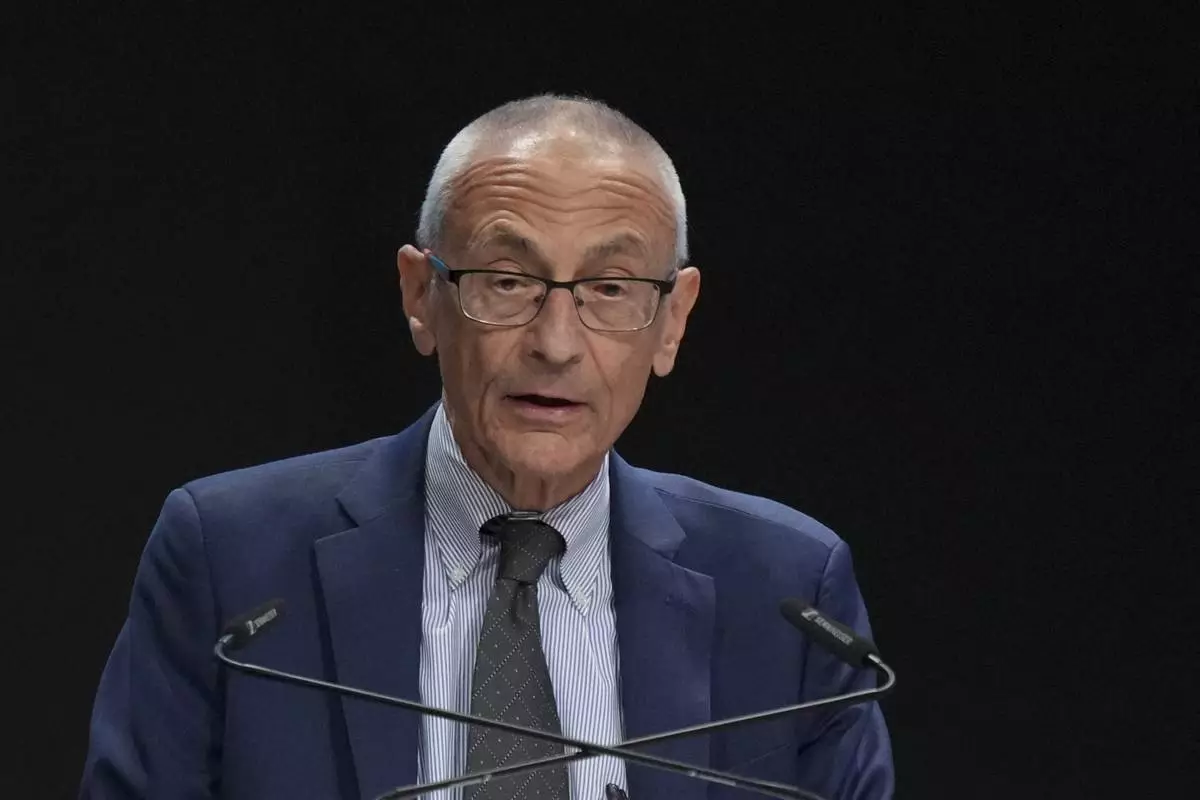
John Podesta, U.S. climate envoy, speaks during a plenary session at the COP29 U.N. Climate Summit, Wednesday, Nov. 13, 2024, in Baku, Azerbaijan. (AP Photo/Sergei Grits)
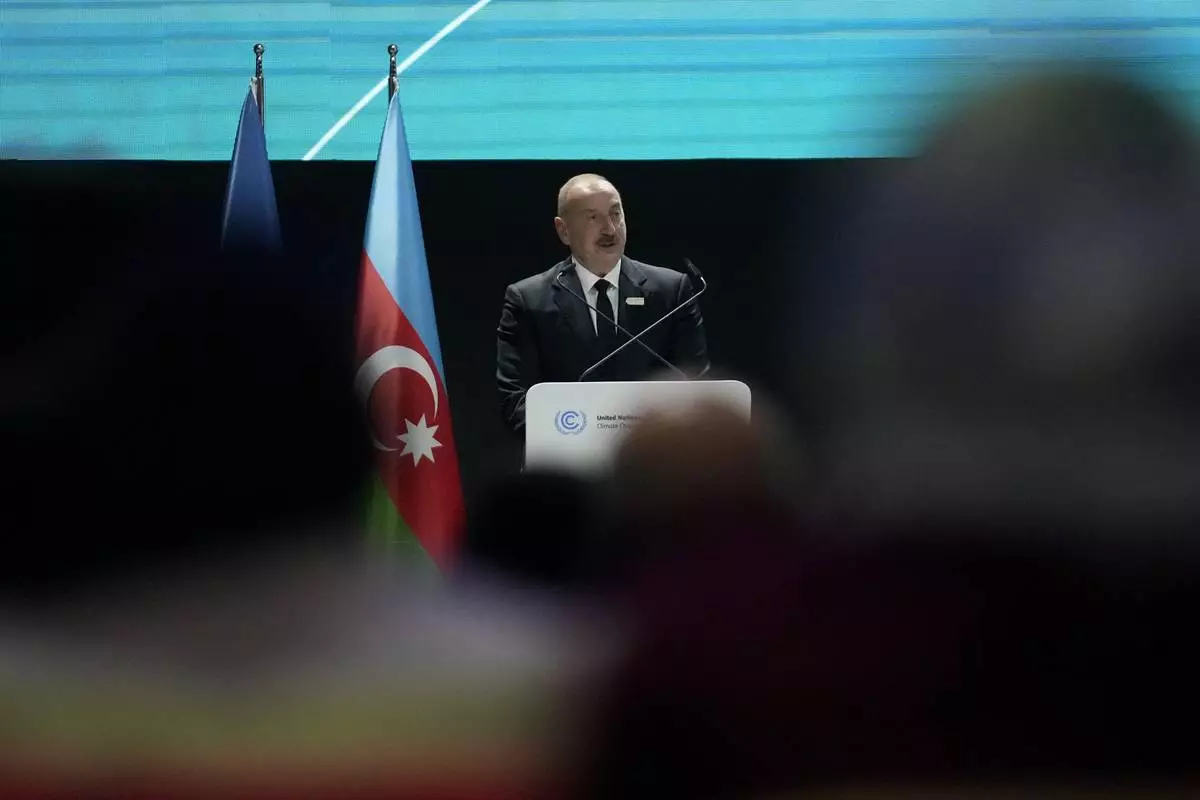
Ilham Aliyev, Azerbaijan president, speaks at a summit of the leaders of Small Islands Developing States at the COP29 U.N. Climate Summit, Wednesday, Nov. 13, 2024, in Baku, Azerbaijan. (AP Photo/Rafiq Maqbool)
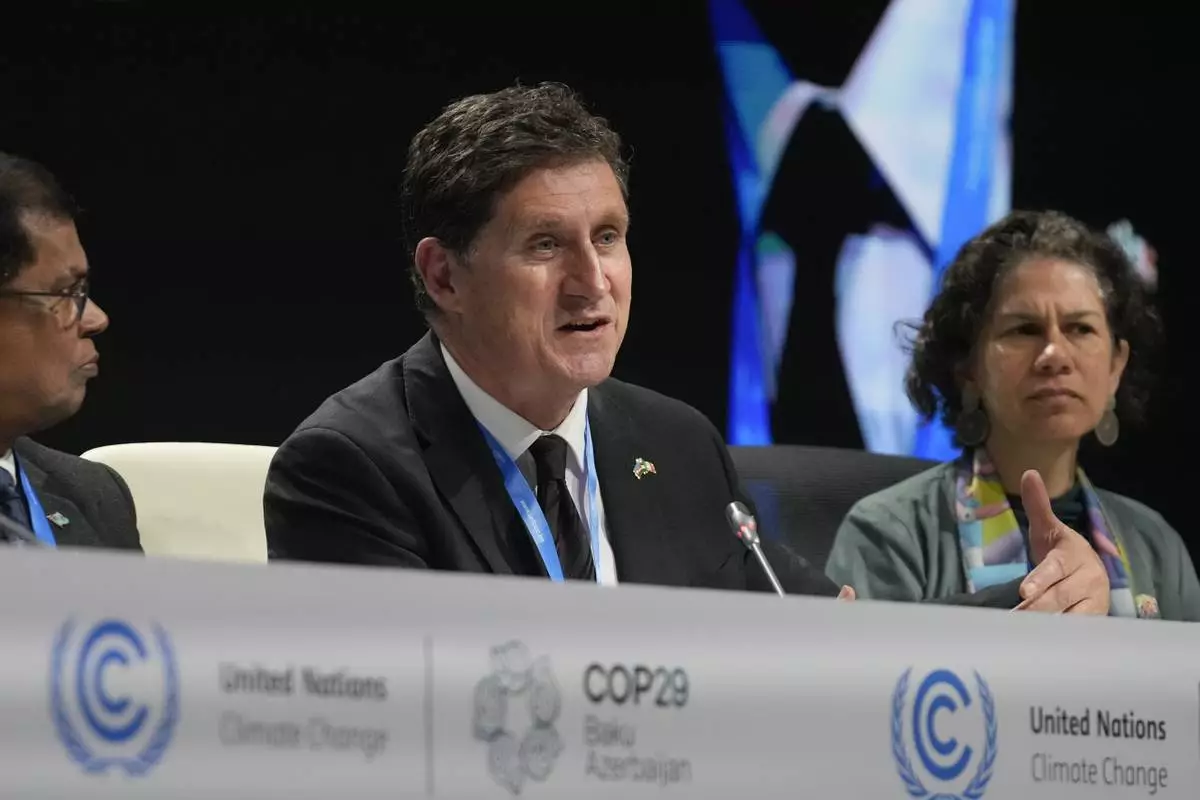
Eamon Ryan, Ireland climate minister, speaks at a session with the Marshall Islands High Ambition Coalition at the COP29 U.N. Climate Summit, Wednesday, Nov. 13, 2024, in Baku, Azerbaijan. (AP Photo/Rafiq Maqbool)
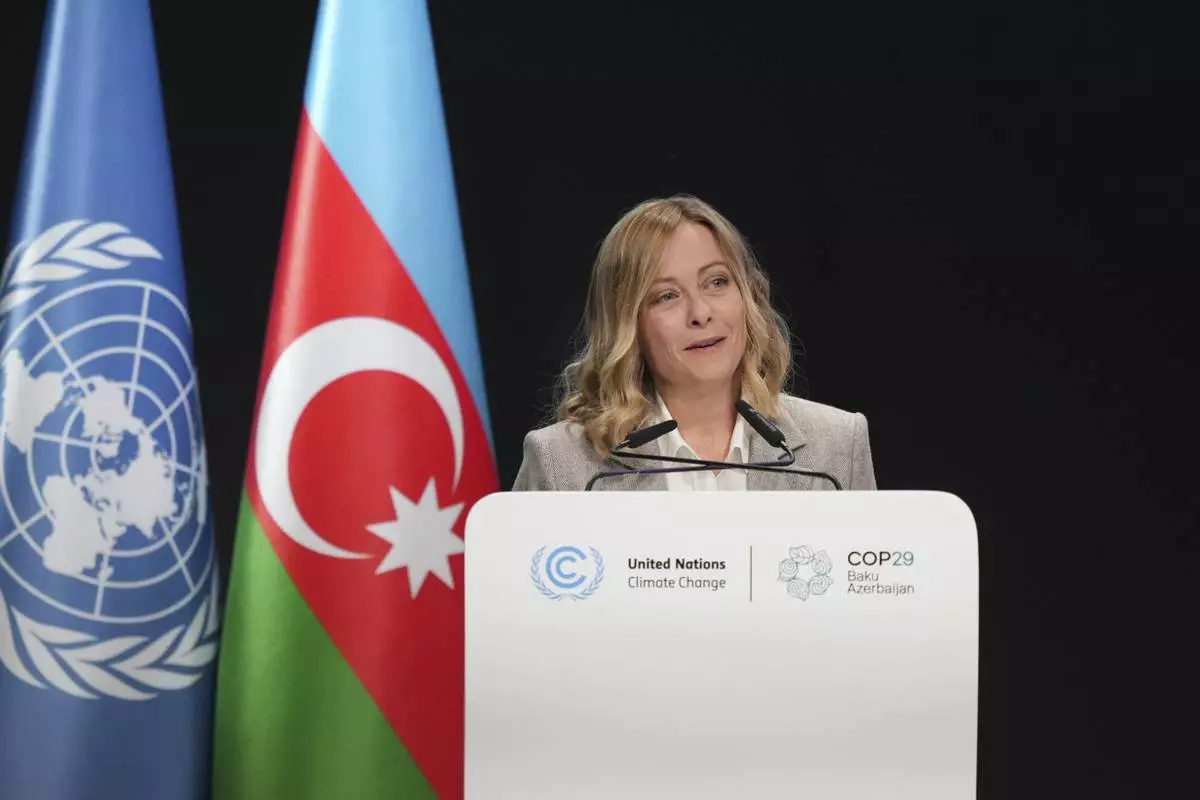
Italy Prime Minister Giorgia Meloni speaks during a plenary session at the COP29 U.N. Climate Summit, Wednesday, Nov. 13, 2024, in Baku, Azerbaijan. (AP Photo/Sergei Grits)
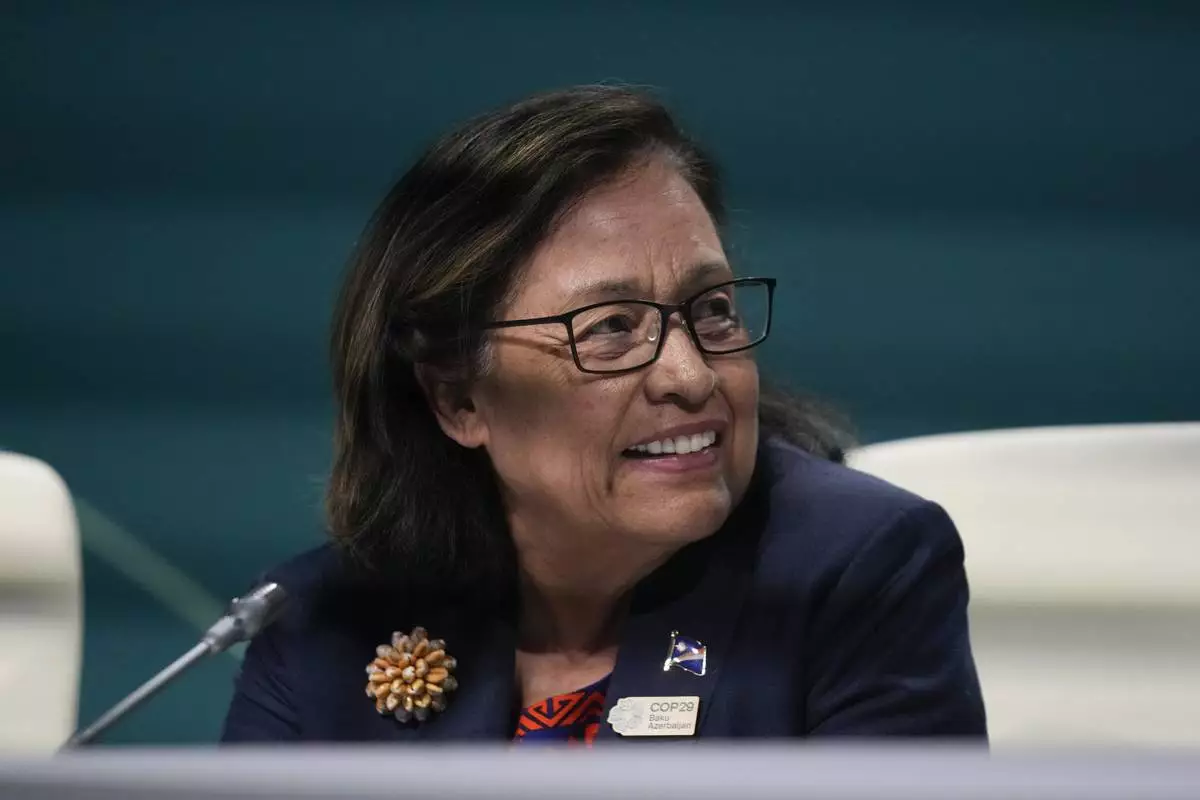
Marshall Islands President Hilda Heine attends a session with the Marshall Islands High Ambition Coalition at the COP29 U.N. Climate Summit, Wednesday, Nov. 13, 2024, in Baku, Azerbaijan. (AP Photo/Rafiq Maqbool)
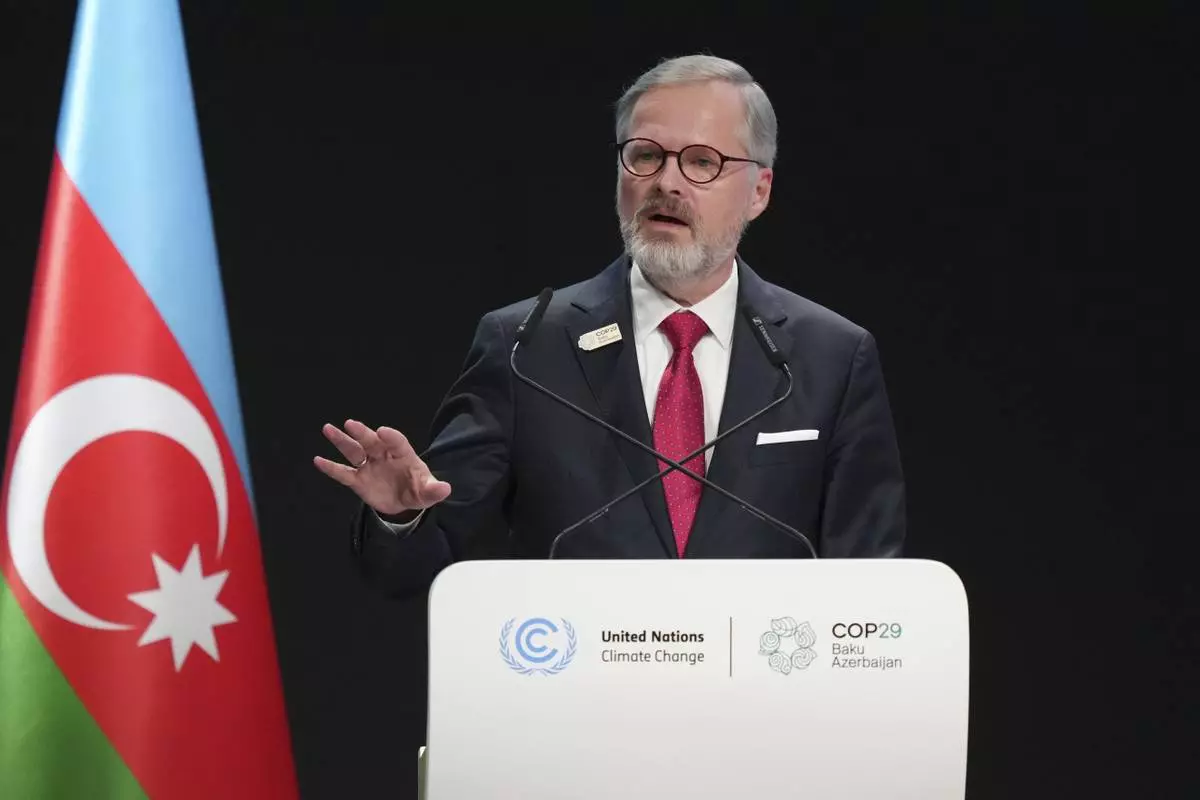
Czech Republic Prime Minister Petr Fiala speaks during a plenary session at the COP29 U.N. Climate Summit, Wednesday, Nov. 13, 2024, in Baku, Azerbaijan. (AP Photo/Sergei Grits)
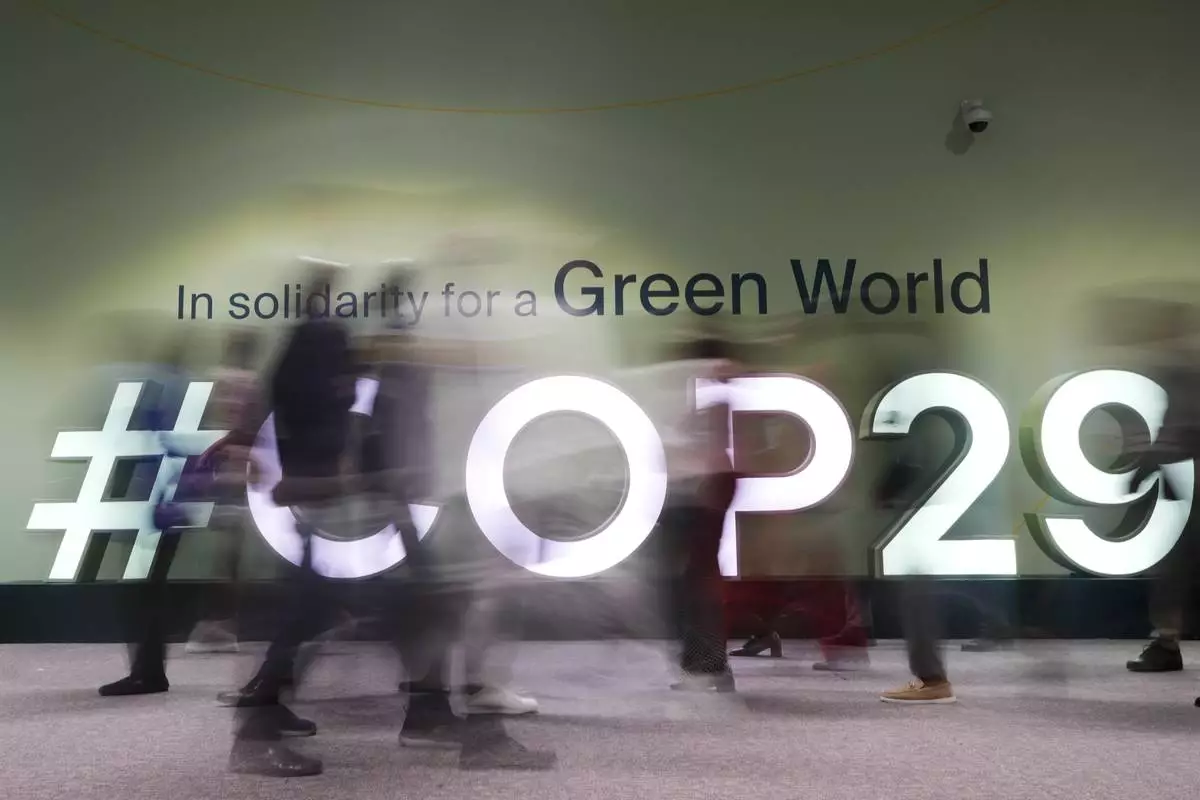
People walk through the COP29 U.N. Climate Summit, Wednesday, Nov. 13, 2024, in Baku, Azerbaijan. (AP Photo/Rafiq Maqbool)
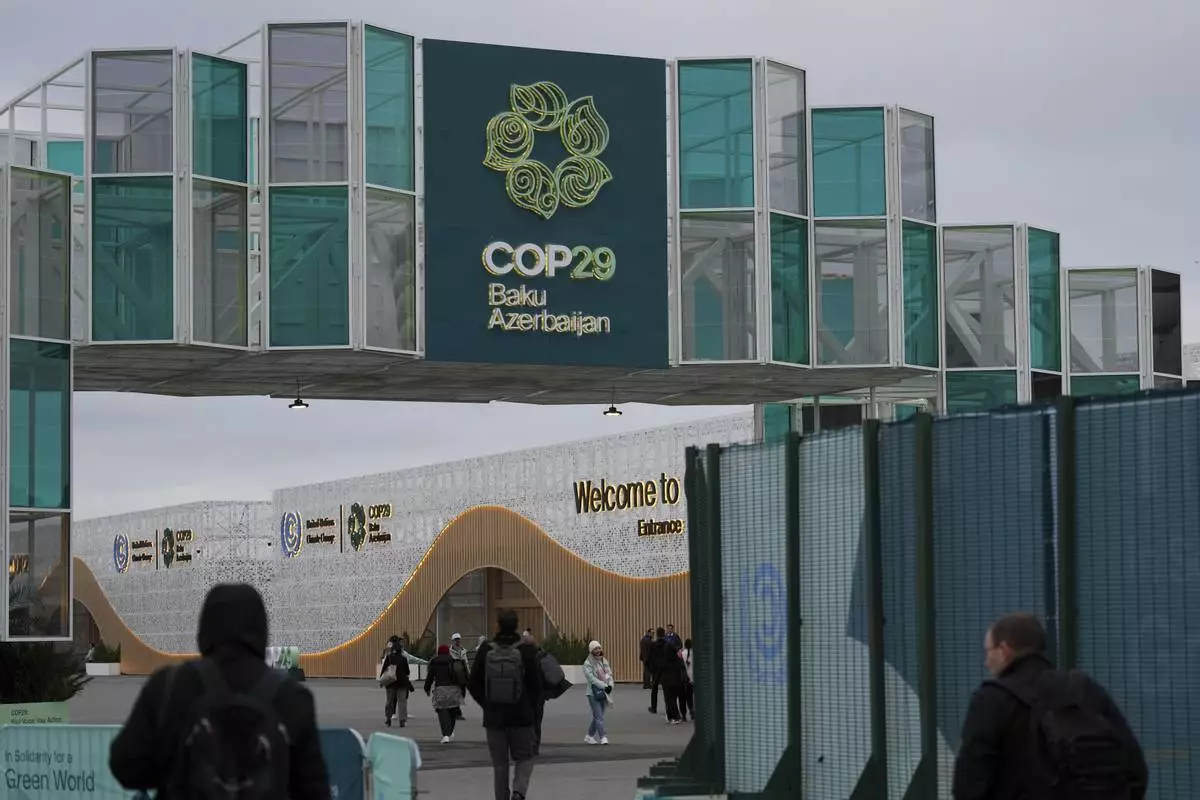
People arrive for the COP29 U.N. Climate Summit, Wednesday, Nov. 13, 2024, in Baku, Azerbaijan. (AP Photo/Peter Dejong)




